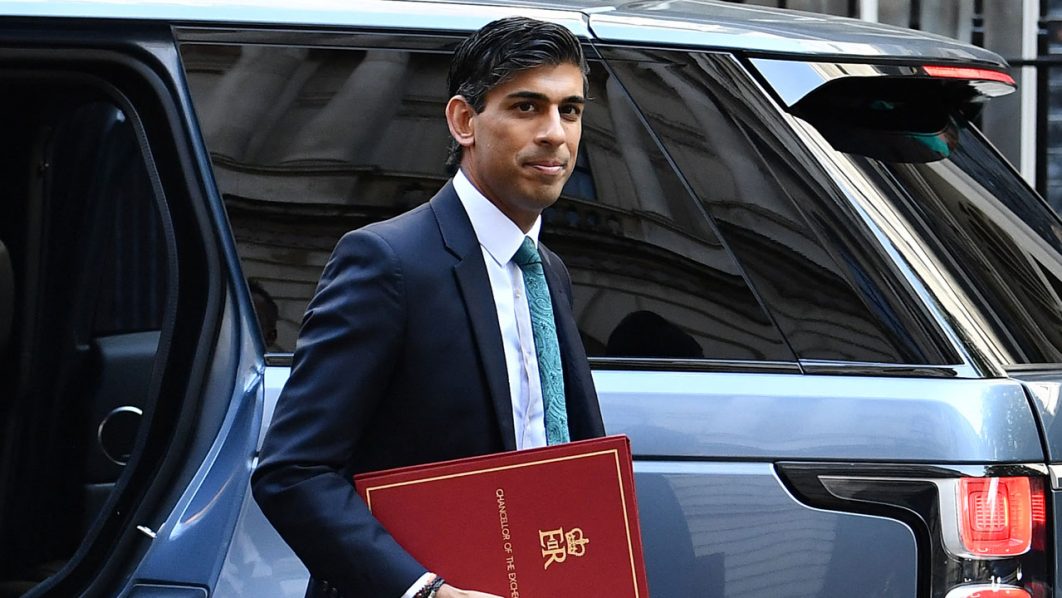International Trade
Breaking: Top ministers including Sunak turn on UK’s scandal-tainted PM

UK Prime Minister Boris Johnson suffered two high-profile departures from his government Tuesday, including his finance minister, in the first stirrings of a cabinet uprising after a slew of scandals.
Rishi Sunak quit as chancellor of the exchequer and Sajid Javid resigned as health secretary with both saying they could no longer tolerate the culture of scandal that has stalked Johnson for months.
Their resignations were announced minutes after the prime minister apologised for appointing a senior Conservative, who quit last week after he was accused of drunkenly groping two men.
Days of shifting explanations followed the resignation of deputy chief whip Chris Pincher, with Downing Street initially denying Johnson knew of prior allegations against Pincher when appointing him in February.
But by Tuesday, that defence had collapsed after a former top civil servant said Johnson, as foreign minister, was told in 2019 about another incident involving his ally.
“I think it was a mistake and I apologise for it,” the prime minister told reporters, after opposition MPs and some Tories accused him of lying over what he knew when he appointed Pincher.
“In hindsight, it was the wrong thing to do.”
The Pincher affair appears to have been the final straw for Sunak and Javid, coming after Johnson only narrowly survived a vote of no confidence among Conservative MPs a month ago.
In particular, the departure of the finance minister in the middle of policy differences over a cost-of-living crisis sweeping Britain is dismal news for Johnson.
In a caustic resignation letter, Sunak said “the public rightly expect government to be conducted properly, competently and seriously”.
“I believe these standards are worth fighting for and that is why I am resigning,” he wrote to Johnson.
‘Integrity’
Javid, who preceded Sunak at the Treasury before quitting over a prior bust-up with Johnson, wrote that the British public “expect integrity from their government”.
The prime minister’s survival in last month’s no-confidence vote gave him the opportunity to show “humility, grip and new direction”, Javid said.
“I regret to say, however, that it is clear to me that this situation will not change under your leadership — and you have therefore lost my confidence too.”
Johnson has been embroiled in various scandals, including the so-called “Partygate” affair, which saw him receive a police fine for breaking his own coronavirus lockdown restrictions in Downing Street.
The 58-year-old premier still faces a parliamentary probe into whether he lied to MPs over the lockdown-breaching parties in Downing Street.
Pincher’s departure from the whips’ office — charged with enforcing party discipline and standards — marks the latest allegation of sexual misconduct by Tories in recent months.
Conservative MP Neil Parish resigned in April after watching pornography on his mobile phone in the House of Commons.
That prompted a by-election in his previously safe seat, which the party went on to lose in a historic victory for the opposition Liberal Democrats.
Labour, the main opposition party, defeated the Conservatives in another by-election in northern England on the same day, prompted by the conviction of its Tory MP for sexual assault.
The controversies have come with Britain battling the worsening cost-of-living crisis and a summer of strikes by various unions over wages and working conditions.
Meanwhile, the country continues to struggle to adapt to Brexit and is risking a possible trade war with the European Union by unilaterally overhauling the special deal it agreed with the bloc for Northern Ireland.
“We’ve got a problem on trade, (a) problem on Northern Ireland, a problem with labour shortages, the pound’s significantly devalued, business investment is down,” former Labour prime minister Tony Blair told the BBC last week.
“I think it is incoherent and it’s also not thought-through and the reason for that is the government’s in survival mode — they’re not thinking about what’s the right long-term plan for Britain’s future.”


